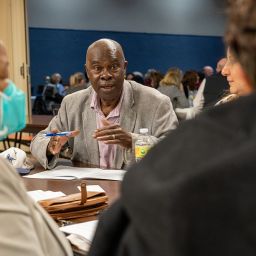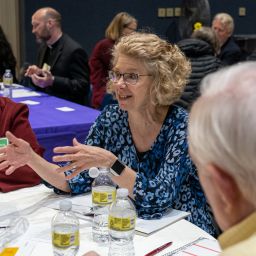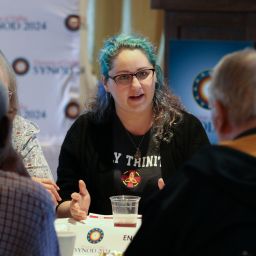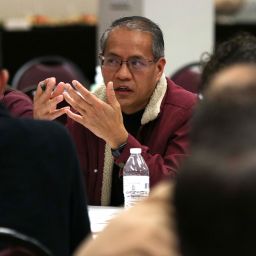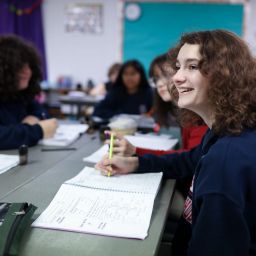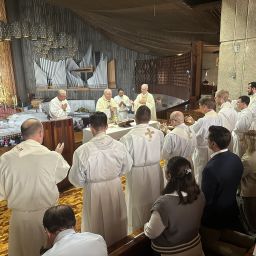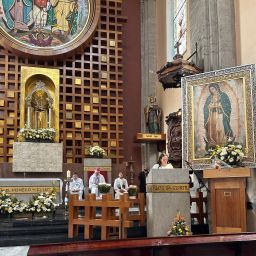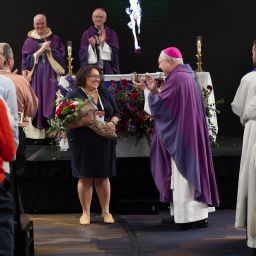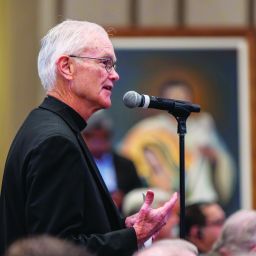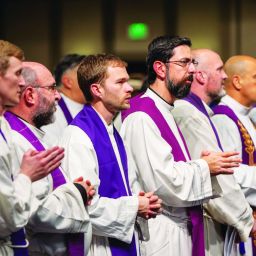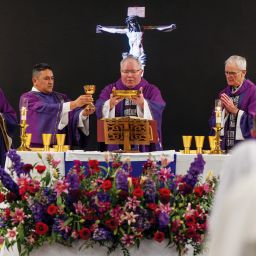In his Feb. 19, 2021 pastoral letter, titled “The Journey Through Lent, Easter, Ascension and Pentecost — A Post-Pandemic Pastoral Plan for the Diocese of Dallas,” Bishop Edward J. Burns called for a diocesan synod and laid out plans for a 10-year process that will culminate in a celebration of the 500th anniversary of the appearance of Our Lady of Guadalupe to San Juan Diego.
A diocesan synod itself is a special gathering of clergy and faithful for the purpose of offering assistance to the bishop in setting the direction for ministry in the diocese for the future.
To help guide the first phase of the synodal process, Bishop Burns assembled a preparatory commission, inviting a group of laypeople and clergy to join. The bishop named Lacy de la Garza to chair that committee.
Recently, The Texas Catholic asked de la Garza to share an update on the diocesan synodal process as the preparatory phase nears its conclusion and the synod assembly draws near. Please find de la Garza’s update below:
ON THE STATE OF THE DIOCESAN SYNOD
Dec. 1, 2024 will be here in the blink of an eye. On day one of the Diocese of Dallas Synod Assembly, we will see almost 300 hundred voting delegates descend upon a hotel somewhere in Dallas. These delegates (who don’t yet know they’ve been chosen!) will convene together as the Synod preparation process culminates in the four-day meeting where they discuss, offer a consultative vote, and thus determine best recommendations to make for Bishop Burns as he sets the direction for the future of our diocese.
But what exactly will these delegates do, and what will they be discussing?
To understand that let’s zoom out, back to where we are right now in this preparatory process.
DATA COLLECTION and LISTENING SESSIONS
The listening sessions hosted by the Synod Preparatory Commission that began in 2021 will conclude in October 2023. As of this publication, there are three remaining opportunities for someone to participate in a listening session. The information gathered at these sessions follows a very specific pathway to get ready for discussion at the assembly.
Guided by the Holy Spirit, the synodal data review process begins with the discussions at listening sessions. Scribes take notes which capture discussions, concerns, solutions, ideas, and all sentiments through words, phrases, and paragraphs. Scribe notes are then read by the preparatory commission and distilled into what are called resolution ideas, encapsulating the thoughts, ideas, potential solutions and practical elements necessary for consideration.
Together with the preparatory commission and both Bishop Burns and Auxiliary Bishop Greg Kelly, these resolution ideas are then de-duplicated, consolidated, and composed into actionable resolution drafts that include specific implementable action plans and timeframes that offer structure to the process of what change will be discussed for the Diocese of Dallas.
RESOLUTION DRAFTING
Once these resolution drafts are written, there will be a lengthy process of revision including the chance for priests to offer feedback. Bishop Burns as final author will formally approve the resolutions presented to the voting members of the assembly for consideration in advance of the assembly.
It is important to note that the voting members of the delegate assembly will be offering a consultative vote. They will not be voting into law things that they wish to see happen. Rather, Bishop Burns as the bishop of the diocese has and always will retain sole governing authority of the Diocese of Dallas; to help him govern best however, he has chosen to listen to the voices of his faithful through this diocesan synodal process. Thus, these voters will be asked to offer specific feedback on what he will then consider for implementation in 2025 and beyond.
The specific items being considered will vary from clergy formation to parish administrative function, from liturgical music to sacramental prep. The final list will not be known until the middle of 2024. All items being considered are drafted in response to the known needs of the diocese, gathered from feedback at the listening sessions, and overall will be approached from a place of “what will best help us grow closer to God”.
In the meantime, as we are in the midst of intense preparations for this assembly. Please pray for the fruitfulness of the remaining listening sessions, for the Holy Spirit to continue to guide this process, and for the end result to bring us all closer to Christ in His Church.
Lacy de la Garza is the chair of the Synod Preparatory Commission.


